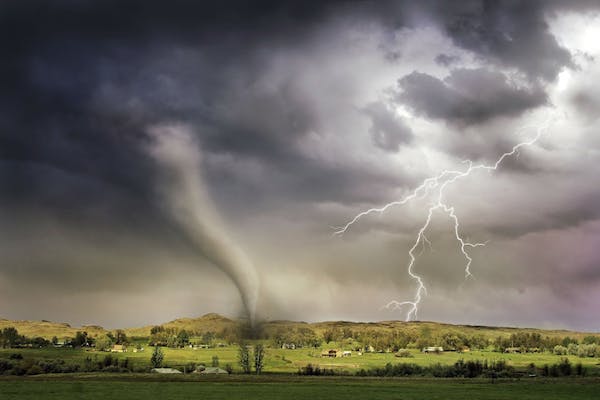WEATHER CHAOS: SPECTRUM OF 6 STRONG WEATHER BASED HEALTH IMPLICATIONS
Weather

Human experience weather changes even without knowing like joints start paining before storm among human due to change in barometric pressure. Weather conditions have direct bearing on the overall wellbeing and health of people around the world. Extreme weather changes and events like floods, drought, hurricanes, typhoons, heat waves and wildfires have drastic impacts on lives of people.

Climate change is also contributing towards weather shifts. Most of the countries of the world are confronting with a problem of weather shifts and its intensity. Pakistan is one of the most affected countries of the world according to Global Climate Risk Index 2020 due to green house gas emissions (CH4, CO2, N2O) despite minimal contribution of the country.
Furthermore, Pakistan water reservoirs are solely based upon 5000 glaciers originated from Himalayan range and due to weather shifts glaciers are melting really fast which pose serious flood threats to Pakistan every year which results in health and infrastructural damage.
Interaction of Weather and Overall Human Health
The weather conditions are continuously changing and causing raised temperatures and precipitation levels, raising sea levels, extreme heat or cold etc. Weather not only has certain environmental impacts rather it has far reaching health implications as well. It affects food, diet and nutrition status of masses.
The severity of weather conditions depends upon overall health and safety apparatus of the country. Low income countries are more vulnerable but natural weather phenomenon can affect and has affected developed nations as well.
The masses may exposed to certain elements like threat to diseases, injuries, famines, mental health problems and even in worst cases deaths.
US Global Change Research Program revealed that weather changes pose serious threats to environmental situations which ultimately affect human health and wellbeing. Like:
- Floods not only cause infrastructural damage but also cause deaths and pose serious problems to survivors because after floods most of water borne and food borne diseases erupts.
- After flood water recession issues like poor air quality and molds growth happen. Such issues may cause eye, nose, throat infections and results in headaches as well.
- Mold spread after floods may cause lungs and pulmonary diseases among immune compromised people.
- Raised temperature levels cause heat waves which results in heat strokes which may become fatal and even life threatening in most of the cases especially among blood pressure and heart patients.
- Similarly, wildfires cause smoke which is hazardous for lungs. Wildfire burn down trees, homes, vegetations and buildings which may spread chemicals and toxins in air and cause pulmonary diseases.
- Hurricanes can also increase threat of water borne and vector borne diseases and may cause injuries as well.
Although, extreme weather conditions can affect anyone irrespective of age, gender and occupation but there are some segment of people who are more at risk like old age people, people with chronic illnesses, pregnant women and children and the people who travel and work at long distances. Global warming is also triggering the extreme weather situations.
Direct and Indirect Weather Shift Implications
Weather conditions abrupt shift pose two types of threats i.e. direct and indirect. Heat waves, heat strokes, raised temperatures, precipitations, storms, floods and land sliding is direct impacts. Whereas, the infrastructural damage, eruption of water borne, food borne and vector borne diseases are indirect consequences which have serious implications on human health and wellbeing.
Effects of Raised Temperatures on Health
Hot weather condition gives birth to heat waves, dehydrations and heat strokes which not only damaging for crops and animals but also detrimental and deadly for human as well. Thousands of deaths continue to report on daily bases in acute summer seasons. Same is the case with the cold seasons, serious cold weather also pose same level of life threats to human.
Extreme hot weather conditions cause serious cerebrovascular, respiratory and cardiovascular diseases. Certain segment of people like students, teachers, professionals, old age people and pregnant women are more vulnerable to certain weathers changes. Urban areas are experienced warmer than rural settings due to industrialization, traffic and infrastructure.
Impacts on Air Quality
Weather shifts has serious threats to overall indoor and outdoor air quality indexes. Hot weathers leads towards increased cases of respiratory and cardiovascular issue. Wildfire, is also contributing towards poor air quality. In 2015 in Pakistan Karachi, 1200 deaths were reported due to extreme heat wave.
Smog, smoke and pollutants further deteriorate health and wellness of masses. Increases levels of carbon dioxide and temperature cause certain air borne disease like ragweed pollens and certain respiratory issues like asthma, inflammation of airways and other lungs infections.
Certain particulars which form due to pollutants and dust particle remain stagnant in air and cause serious pulmonary illnesses after inhalation like COPD (Chronic Obstructive Pulmonary Disease) and lungs cancers. Around 34 million people in America are asthmatic. Allergens cause hay fever and pollens allergies further degrading the health and lungs functioning.
There is an interesting observation that due to weather changes flowering season also affected. Early flowering cause more probability of pollen allergies which cause serious health issues. It is estimated that out of total 68000 deaths around 52% deaths were due to lower respiratory diseases owing to certain pollutants and air borne infections.
Impact of Vector Borne Diseases
Weather changes like raising temperatures, floods and precipitation also increase the threat of vector borne diseases which are caused by ticks, mosquitoes and fleas. The intensity of vector borne diseases is really high because vectors carry certain deadly bacteria, virus and protozoas.
Ticks become more active and lethal in warmer weathers and cause a disease named Lyme. The common symptoms of Lyme are fatigue, headache, fever and rash. It needs immediate medical attention to curb further spread.
Mosquito cause serious illnesses including malaria, dengue and Nile West virus. They thrive in relatively warmer weather conditions and multiply really fast. Around 3 million people were infected by West Nile virus from 1999-2010.
It is noticed in Pakistan that outbreaks of dengue fever affected 22000 people in 2011 and cause 350 deaths and in 2019 , around 44000 were affected which high toll of deaths.
Likewise, Pakistan is also confronting from zika virus and chikungunya outbreaks and around 50-60% acute viral hepatitis cases among children and adults.
Furthermore, Pakistan is a country facing highest levels of typhoid which is around 452/100000 cases. The common cause of it is Salmonella Typhi or Salmonella Paratyphi infection.
Water Borne Diseases
Weather shifts also cause certain water borne implications as well. People got sick through drinking contaminated water which causes gastrointestinal problems like diarrhea and it can also pose threats to liver and kidney. The researchers also reveal that water borne diseases have the capacity to affect nervous and respiratory system as well.
Certain weather conditions and climatic shifts cause exposures to certain bacteria, virus, and parasites like Giardia and Cryptosporidium. The toxins cause by algae and human spread chemicals make water reservoirs more unhealthy and injurious.
Floods, storms and hurricane rains contaminate drinking water sources and make water contaminated which make water un-drinkable and deadly.
Nutrition and Food Safety
Food safety and nutrition could be affected by raised levels of carbon dioxide in air. Increased temperature leads towards high reported cases of Salmonella and other food poisoning bacteria. Such bacteria cause gastrointestinal problems which cause serious health issues and have the potential to cause deaths in worst conditions.
Weather conditions affect food efficacy and also make them injurious for health like higher sea surface temperature increased the concentration of mercury in sea foods.
Higher carbon dioxide levels in air on one hand act like fertilizer for plants however on the other hand it diminish proteins and minerals in potatoes, rice and wheat which make them less nutritious and least useful.
Impacts on Mental Health
Mental health is strongly affected by certain weather conditions and seasonal shifts. Especially, in case of natural calamities like floods most of the people lose their loved ones which increase their stress levels and cause serious mental trauma. Studies conducted in 2010 reveal that around 7, 14,800 people are affected by floods in Pakistan annually. Sadly, it is estimated that till 2030 around 1.5 million people will be affected by floods which 685000 affection rate.
The research studies posits that a person already confronting from mental illness and taking medications is more vulnerable to deal with heat and harsh weather conditions. It is observed through LEAD surveys that due to 3 consecutive droughts in Tharparkar Pakistan in 2012, the suicide rate increase by 75%.
In addition to this, certain news and information regarding certain event may further deteriorate their mental conditions and cause phobia, mental disorder and post traumatic stress which ultimately affects overall health and wellbeing.
Conclusion
Weather affect human in every respect like it may affect in case of heat, cold, storms and floods and also in case of droughts and famines. It has long lasting impact on human health and wellbeing. Poor air quality could deteriorate lungs functioning and cause lungs and pulmonary diseases.
Heat waves can cause cardiac diseases and heat strokes. Water-borne illnesses attack after floods and cause food contaminations as well. Nutrition and food adversely affected by the weather conditions. So, it is evident that weather has wide range of consequences on human health and may also cause serious threats to it which need ultimate caution and attention.
FAQs
Does weather has implications on health?
Yes.
How weather impact human health?
Certain weather conditions and seasonal shifts directly or indirectly affect human health like heat waves cause heat stroke and cardiovascular diseases.
Are weather impacts on health reversible?
Yes but through precautionary measures.






